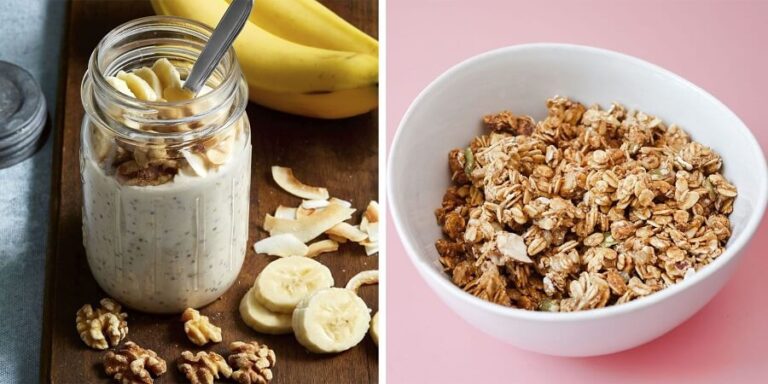When it comes to losing weight, you probably need to renew what you usually eat and drink; change the refined flours for their wholegrain versions or the sweet desserts for their low-sugar versions.
Except, thankfully, for your morning cup of coffee. As long as you don’t add tons of cream, sugar, and sweetened flavorings, most weight-loss diets, and meal plans allow you to keep your coffee, and it may even be your favorite brand or variety.
But even though coffee tends to be labeled a good diet drink, there seems to be a lot of confusion about whether it can help lead to weight loss. Even scientific research comes and goes on the big question of, does coffee help you lose weight? This article takes a close look at the evidence so far.
Various components of coffee have been associated with weight loss.
Coffee contains caffeine, which is the most widely consumed psychoactive substance globally.
Caffeine is also included in most commercial fat-burning supplements. For a good reason: it is one of the few substances known to help mobilize fats from fatty tissues and increase metabolism.
Caffeine works by blocking an inhibitory neurotransmitter called adenosine. By blocking adenosine, caffeine increases the activation of neurons and the release of neurotransmitters such as dopamine and norepinephrine. This, in turn, makes you feel more energetic and awake.
In this way, coffee helps you stay active when you would otherwise feel tired. Coffee can improve exercise performance by 11-12%. (1)
Additionally, many other biologically active substances found in coffee beans have been associated with weight loss:
- Theobromine: is the primary stimulant of cocoa; it is also found in smaller amounts in coffee.
- Theophylline: Another stimulant found in cocoa and coffee; It has been used to treat asthma. (2)
- Chlorogenic acid: One of the main biologically active compounds in coffee; It can help slow the absorption of carbohydrates. (3)
RELATED:
- How to make bulletproof coffee?
- How much coffee can you drink per day?
- How much caffeine does mate have?
Weight Loss Coffee: What Does The Research Say?
There is no resounding yes or no on whether coffee helps or hurts weight loss. Studies have supported the idea that drinking coffee stimulates weight loss, but not enough to make it a commonly accepted scientific fact.
Some recent studies have suggested that drinking coffee in excess for a long time has adverse effects, which may or may not negate the positive impact. This is what some recent studies say.
Research that indicates that coffee helps you lose weight:
- A 2019 study published in Scientific Reports states that caffeine can stimulate brown adipose tissue or the fat in your body that burns calories. The researchers found that drinking one cup of coffee per day increases your metabolic rate to the point where brown adipose tissue activity occurs, leading to fat burning and weight loss. (4)
- People who drank four cups of caffeinated coffee a day saw a 4 percent decrease in body fat, according to 2020 findings from Harvard public health researchers published in the American Journal of Clinical Nutrition. (5) The study authors suspect this is because drinking coffee increases a person’s metabolic rate (which can increase the number of calories burned).
- In a 2020 study on rats in the Journal of Functional Foods, the caffeinated matte extract was found to reduce the incidence of weight gain and body fat accumulation. The same results were not observed with the decaffeinated extract (which suggests that at least the caffeine in a mate is the one that promotes weight loss). But remember, you are not a rat! The human findings could be different. (6)
Research that points to coffee making it challenging to lose weight:
Drinking caffeinated coffee has been linked to increased sugar cravings, meaning your cup in the morning could be setting you up to make poor decisions in your day (and prevent you from losing weight).
- A 2017 study in the Journal of Food Science showed that drinking a cup of caffeinated coffee affected people’s taste buds, particularly their interpretation of sweetness. (7)
- Drinking coffee even six hours before bed can cause sleep disturbances, according to a 2013 study published in the Journal of Clinical Sleep Medicine. This has a broad impact on the body: poor or insufficient sleep has been strongly linked to weight gain from eating more. (8)
- People become tolerant to the effects of caffeine over time; in the short term, caffeine can increase metabolic rate and increase fat burning, but after a while, people become tolerant to the effects and stop working. (9)
So, is coffee used to lose weight?
With these results, everything points to the fact that coffee could slightly help you lose weight in the short term, mainly because it makes you move more, reduce your appetite and help you eat less. But, consuming too much coffee each day or for too long is unlikely to cause you to expend more calories in the long run.
If you like to drink coffee, feel free to drink a reasonable amount. There is no solid evidence for back coffee for or against weight loss. So if your coffee habit works for you, go for it. Don’t rely on your weight loss goals on your caffeine intake because no one knows if there is a connection.
How much coffee is good?
Various sources suggest that 400 mg of caffeine per day can be part of a healthy diet and is safe for most healthy adults. This is the equivalent of 4 cups (945 ml) of coffee. (10)
A said maximum safe daily dose of coffee has been set according to the general effects on the body, and it is recommended to consume no more than 300 mg at a time without added sugar.
Drinking coffee every day to lose weight and obtain its benefits is considered safe, as long as these amounts are not exceeded. Remember that other sources of caffeine, such as green tea, count toward that daily intake.
ABSTRACT
Although coffee can stimulate your metabolism in the short term and help you lose weight, this effect diminishes due to tolerance.
If you are interested in coffee primarily for fat loss, it may help rotate your coffee drinking habits. Perhaps the best are cycles of two weeks with two weeks of rest.
Of course, there are many other good reasons to drink coffee, including that it is an excellent source of antioxidant compounds.







